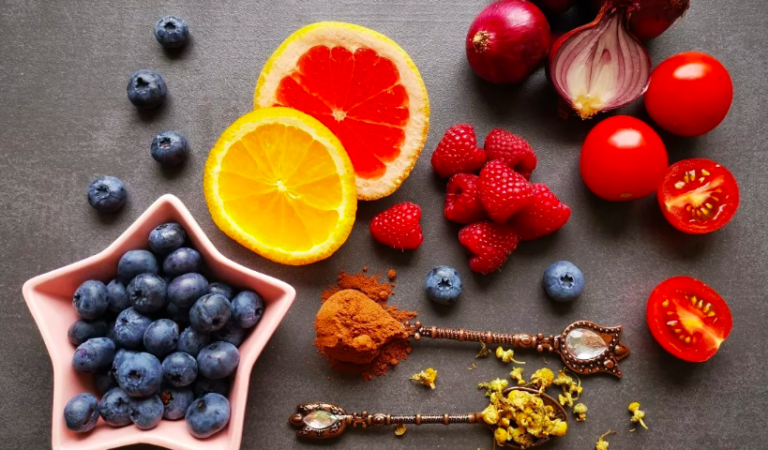Flavonoids are responsible for the vibrant colors in fruits and vegetables and are renowned for their antioxidant properties and benefits to cognitive health, among other health indicators. Found in foods like tea, certain vegetables, citrus fruits, wine, and cocoa, these plant-based compounds are now being studied for their potential to reduce the risk of dementia. A new study, published in JAMA Network Open, highlights the impressive impact of flavonoid-rich foods on cognitive health, showing that a diet rich in these compounds could reduce dementia risk by 28%.
Flavonoids also boast anti-inflammatory, antioxidant, and anticancer properties, and recent studies indicate that incorporating them into your diet may lower the risk of conditions like diabetes, heart disease, strokes, and even viral infections.
Each flavonoid has its unique benefits. For instance, quercetin, found in capers, onions, and kale, is known for its natural antihistamine properties, making it helpful for those with allergies or hay fever. Additionally, apigenin, found in chamomile and orange peel, has calming effects that can help promote sleep.
How many flavonoids should you consume?
Although there’s no upper limit for flavonoid intake, the average daily consumption in Europe ranges from 313-428 mg, with experts suggesting there’s room for more.
Top Sources of Flavonoids:
- Tea: Drinking 4 cups of tea daily can be beneficial.
- Berries: Blueberries and strawberries are rich in anthocyanins, which support heart and brain health.
- Onions: Particularly dried onions, are a good source of flavonoids.
- Red Wine: Contains resveratrol, known for its heart benefits (limit to one glass a day).
- Citrus Fruits: Oranges and grapefruits are rich in hesperidin, with anti-inflammatory properties.
- Dark Chocolate: High-quality dark chocolate has up to 3 times more flavanols than milk chocolate.
- Leafy Greens: Kale and spinach are excellent sources of kaempferol, which fights inflammation.
Ask me anything
Explore related questions





